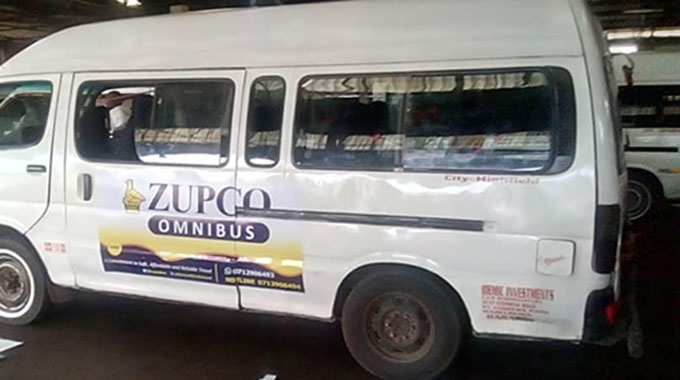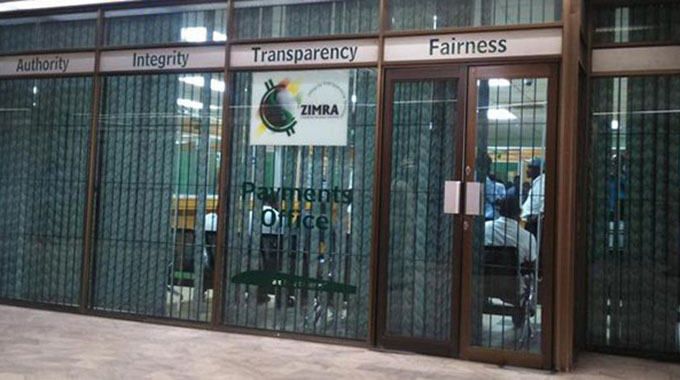EDITORIAL COMMENT : Zupco’s new kombi model can do the trick

ZUPCO’s recent move to expand its services by franchising a select group of commuter omnibuses, also known as kombis, is not only helping to boost its fleet, but has a large number of other benefits.
The ZUPCO fleet of large buses is small, and even with the addition of a fair number of franchised buses, the total fleet was unable to move more than around 10 percent of those wanting the services.
Independent kombis still provided the bulk of the fleet that moved people to and from work each day.
The presence of ZUPCO and franchised buses did help moderate fares, but independent kombi fares are still two to three times what ZUPCO charges.
ZUPCO is in receipt of subsidies, which are budgeted and carefully disbursed. The subsidies, in fact, absorb a modest percentage of the excise duties levied on every litre of petrol and diesel.
In using part of the taxes on fuel to subsidise public transport Zimbabwe is following a precedent set by many countries, including the United States of America and Germany.
As Minister of Finance and Economic Development Professor Mthuli Ncube has strongly argued, subsidies are not anathema even in times of economic reform so long as they are budgeted for and properly administered.
Hardline economists would also demand that they are tied to a particular tax, and even here Prof Ncube appears to pass.
While the Government has started expanding the ZUPCO fleet, and has plans for many more buses, this will take time and cost more.
Even if all the finance was instantly available there would still be a problem of creating a proper replacement cycle. Buying a complete fleet of buses means that in a few years another complete replacement fleet is needed in one fell swoop.
A normal transport operation replaces a small percentage of its buses each year; for example if the average lifespan of a bus is six years then the bus operation would replace one sixth of its fleet each year in a normal replacement cycle.
So extending the existing fleet by franchising kombis makes sense. These minibuses are there and can take some of the load right now without additional investment by the Government and ZUPCO, allowing an easier investment process.
The second advantage is that franchising kombis allows the huge private investment already made in kombis to be properly used. To force owners to dump the thousands of kombis already on the roads would be a major waste of resources, and cause quite a bit of economic dislocation.
A phased transfer of public transport from kombi to bus makes a lot of sense and is fairer.
The third advantage, especially in the early years of re-establishing the public fleet and service, is that scheduled services are not really possible at the moment.
The fleet is in hard use during the day. There are also problems of waiting to fill a bus on many routes in off-peak hours. It can take over 30 minutes to sell all seats on a kombi on such routes at such times and far longer for a large bus.
This has been partially hidden by the popularity of the cheap ZUPCO buses, which even at 10am will arrive at a terminus to find a queue formed. But as the service expands that will not always be the case, hence the economic need for smaller buses.
The fourth advantage is the opportunity that now opens to at long last bring kombis under better control. While they are essential for public transport, there are many complaints, both from those that they carry and those who share the roads with them.
Some half-hearted, and at times half-baked attempts have been made to impose controls by edict from the Harare City Council, and they all failed, often deservedly so.
But, if ZUPCO can bring in ever larger numbers into its franchised fleet, it can impose controls. Those who have travelled by ZUPCO franchised kombis have noted that for a start the drivers appear to have been ordered to follow the Highway Code, a significant start. More control is obviously possible.
This will allow ZUPCO, in conjunction with the city council and other interested parties, at some stage to take full control. Those prepared to follow ZUPCO rules will be able to ply their business in a more orderly manner.
Those reluctant to do so can then be banned from the city centre. This will produce the desired state of affairs whereby municipal police and ZUPCO marshals can control terminuses and ranks, rather than having touts exploiting drivers and passengers as happens at the moment.
At this stage it will not really matter if ZUPCO retains a mixture of ownership and franchise or moves onwards to full ownership of the public transport. What matters is control, and yet control that ensures the actual passengers have the best possible service.
Obviously the present small step of a few kombis coming in as franchised services is testing the waters. We understand that it is a result of one association of kombi owners hammering out a deal with ZUPCO.
No doubt there will be attempts at cheating, and no doubt at times rules may be broken. ZUPCO needs tight monitoring to see these as they happen and then remove the offenders from its franchised operations; it has that sanction.
But as the potential problems are ironed out it must be expanded to bring in as many kombis as possible, always under the proviso that those joining are aware that they must obey the rules.
Passengers are delighted with the expansion of ZUPCO services, and in fact queue for these buses and kombis.
Restoring a decent public transport system at moderate fares has been an extremely popular move, and the latest acceleration of this shows that flexibility and innovation can pay large dividends.










Comments